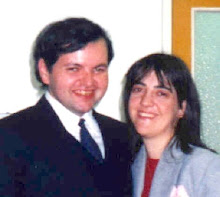Nowadays we eat food elaborated from plants whose resistance and strength have been increased by transgenic methods. Our children can be conceived in vitro, outside our bodies. We respond with every weapon of our natural immune system to the artificial and fictitious threat of a recombinant vaccine. Can we still define Biology as the science studying the natural characteristics and physiological functions of living beings? Considering our present lives, most of us would answer "not at all".
Many common technological strategies use natural processes and tools to create functions or artificial characters in plants, in animals and until in bacteria. Today, the procedure of gene cloning in plasmids employing restriction enzymes became a traditional method. Both tools occur naturally. Plasmids are natural structures present in some microorganisms and restriction enzymes are natural bacterial endonucleases designed to destroy any foreign nucleic acid. Thanks of this kind of techniques we have at our disposal yeast or animal cultured cells producing proteins of great medicinal importance, like somatotrophin and insulin. Biotechnological development will allow us to rise cattle able to secrete human proteins in its milk.
Those strange technological manipulations seem very artificial at first sight. Nevertheless, they fulfil conditions and they take routes that never turn off from the basic physiological principles
characteristic of any alive organism processes. Of course, a human gene carries information of a human protein. However, if a human gene must be expressed by a bacterium (that is, if that gene must to produce its corresponding protein in a foreign host cell), it will need to fulfil the essential conditions required by bacteria to recognize a DNA sequence like a functional gene. That is to say, the gene must not have any message interruption and it should be flanked by bacterial -not human- regulation regions. As much as "recombinant" could be a vaccine (even if it only keeps one protein from the bacterium to which it must emulate), it will have to follow every step any foreign microorganism do to be recognized as a strange element by our immunological cells once vaccine is inoculated. In addition, our defensive answer will be the same as if the whole bacterium had come into our body. Of course, provided such bacterium is absent, the human being will easily win the "battle".
If we let ourselves be haunted by this second, fascinating -although controversial - point of view, we will recognize that we can also answer "yes" to the initial question. We can still define Biology as the science studying the natural characteristics and physiological functions of living beings. That way, we are accepting that the scope of Biology, with its own classical rules and principles, has undergone an enormous expansion during the last decades, even taking possession of some technological, pharmacological and medical areas.
Copyright Mirta Elena Grimaldi. All rights reserved.
Many common technological strategies use natural processes and tools to create functions or artificial characters in plants, in animals and until in bacteria. Today, the procedure of gene cloning in plasmids employing restriction enzymes became a traditional method. Both tools occur naturally. Plasmids are natural structures present in some microorganisms and restriction enzymes are natural bacterial endonucleases designed to destroy any foreign nucleic acid. Thanks of this kind of techniques we have at our disposal yeast or animal cultured cells producing proteins of great medicinal importance, like somatotrophin and insulin. Biotechnological development will allow us to rise cattle able to secrete human proteins in its milk.
Those strange technological manipulations seem very artificial at first sight. Nevertheless, they fulfil conditions and they take routes that never turn off from the basic physiological principles
characteristic of any alive organism processes. Of course, a human gene carries information of a human protein. However, if a human gene must be expressed by a bacterium (that is, if that gene must to produce its corresponding protein in a foreign host cell), it will need to fulfil the essential conditions required by bacteria to recognize a DNA sequence like a functional gene. That is to say, the gene must not have any message interruption and it should be flanked by bacterial -not human- regulation regions. As much as "recombinant" could be a vaccine (even if it only keeps one protein from the bacterium to which it must emulate), it will have to follow every step any foreign microorganism do to be recognized as a strange element by our immunological cells once vaccine is inoculated. In addition, our defensive answer will be the same as if the whole bacterium had come into our body. Of course, provided such bacterium is absent, the human being will easily win the "battle".
If we let ourselves be haunted by this second, fascinating -although controversial - point of view, we will recognize that we can also answer "yes" to the initial question. We can still define Biology as the science studying the natural characteristics and physiological functions of living beings. That way, we are accepting that the scope of Biology, with its own classical rules and principles, has undergone an enormous expansion during the last decades, even taking possession of some technological, pharmacological and medical areas.
Copyright Mirta Elena Grimaldi. All rights reserved.




No comments:
Post a Comment